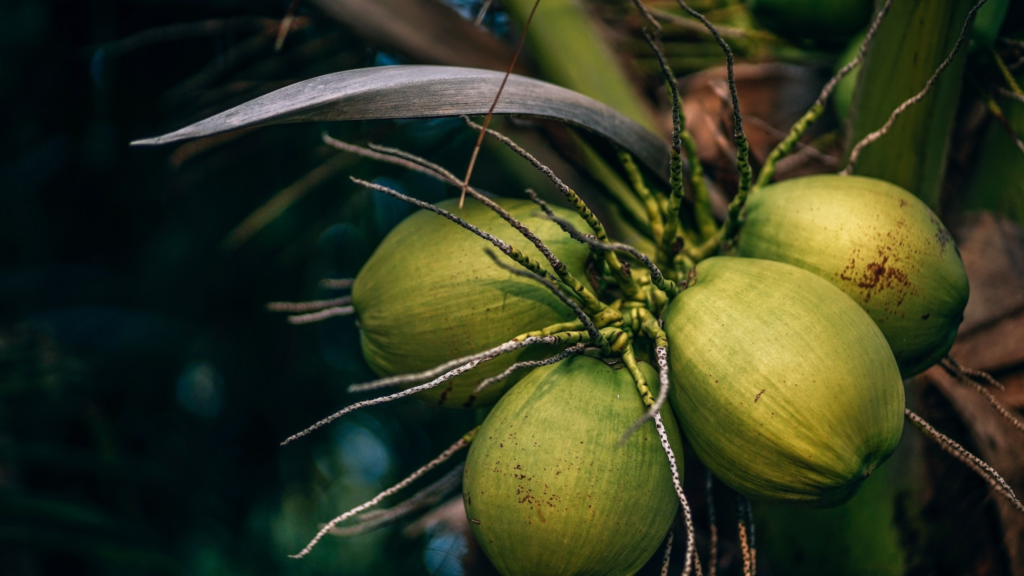Coconut plays a vital role in the economy of Nigeria. Apart from the copra and coconut oil which is widely used in the manufacture of soaps, hair oil, cosmetics , its husk is a source of fiber which is used for producing carpets, doormats, and brushes. The tender nut supplies coconut water while the fresh coconut kernel is used to produce virgin coconut oil without any chemical processes
In 2019, Indonesia was the largest exporter of coconuts in the world,
followed by Thailand and Vietnam. The three countries held about a 23
per cent share of total exports, while Cote d’Ivoire, Malaysia, the
Netherlands, Mexico, Guyana, and India, all together, made up 17 percent
of total exports.
Nigeria has all it takes to become a big producer of coconuts in Africa and the world and earn more foreign exchange. The reasons are as follows: Coconut can be planted in more than 22 states of the federation because the land is very good for it, but up until now, Nigeria has not utilized the resources properly, except in Lagos, where about 70 per cent of the national output comes from.
Factors to consider when going into coconut farming
Soil: Experts say that the ideal soil conditions that guarantee improved growth and performance of your coconut palms are well-drained soil that is between 50-100cm in depth and good water holding capacity. You can also grow your coconut under different soil types like the lateritic, coastal sandy, alluvial, loamy, etc
Spacing between coconut plants: a square system of planting with a spacing of 7.5 meters by 7.5 meters is recommended. This will accommodate 117 palms per hectare.
Coconut Planting Season: you should know that coconut palm is largely dependent on the availability of water, so your planting should be carried out at the onset of the rainy season. You are advised to use seedlings grown and nurtured in a nursery for your coconut propagation which can be purchased from us at Quemems Farms . Your coconut seedlings should be between 8-10 months old before you transplant them to the permanent coconut plantation farmland.
Manure Requirement: you should know that regular manuring from the first year of planting is essential to achieve higher productivity.
Fertilizer Requirement: To ensure optimal growth and development of your coconut seedlings, place the seedlings in the already dug holes backfilling them with topsoil that is mixed with 30g NPK fertilizer. Ensure you handle the seedlings carefully to avoid damaging the sprout. You are highly advised to start irrigation once the planting is over.
As your coconut seedlings grow in your coconut plantation, make sure you backfill soil to the surrounding soil level. According to the Coconut Development Board, a mature coconut palm requires on the average between 600-800 liters of water once in every 4-7 days. It will interest you to know that during the dry season, the death of transplanted coconut seedlings is on a high, there is the shedding of young nuts, the inability of young fronds to open, and the drying and hanging down of older fronds.

